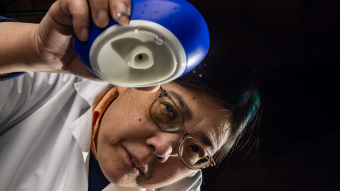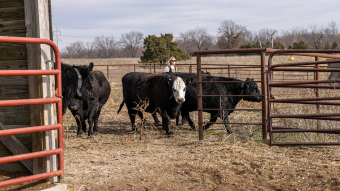
Road salt creates more harm to freshwater life than expected, study finds
University of Missouri researchers discovered road salt is more deadly when combined with the fear of predators, disrupting ecosystems and impacting water quality.

A night of Mizzou art, performance and creativity
The Chancellor’s Arts Showcase returns to the Missouri Theatre for performances, exhibitions and student stories that celebrate imagination and creativity.

University of Missouri conducts first in-person clinical trial for nuclear medicine breakthrough device
The clinical trial marks the latest human trial at Mizzou involving radioisotopes to treat cancer.

Feb. 10, 2026
3D-printed brain models could revolutionize medical research and training
University of Missouri researchers are developing a realistic, life-sized synthetic model of the human brain.

Feb. 5, 2026
Mizzou ranks among top universities in the world
University of Missouri places 13th among U.S. flagships and No. 2 among public SEC schools in TIME’s World’s Top Universities list.

Feb. 4, 2026
Spray away infections: Mizzou researcher using new device to give antibiotics via mist
The new device sprays mist to treat deep wound infections without causing kidney damage.

Feb. 3, 2026
No fences needed: GPS collars show ‘virtual fencing’ is next frontier of livestock grazing
Mizzou’s Center for Regenerative Agriculture is helping Missouri farmers effortlessly rotate their livestock for optimal cover-crop grazing.

Feb. 2, 2026
Lab-grown algae removes microplastics from water
Professor Susie Dai has engineered special algae to remove and reuse harmful microplastics from wastewater.

Jan. 27, 2026
Mizzou ranked among the best online bachelor’s programs in the nation
U.S. News & World Report’s latest rankings reflect a bold commitment to educating future leaders and delivering a world-class education wherever students are.

Jan. 21, 2026
Spotting skin cancer sooner with the help of artificial intelligence
Mizzou researcher is proving that AI can accurately detect melanoma.